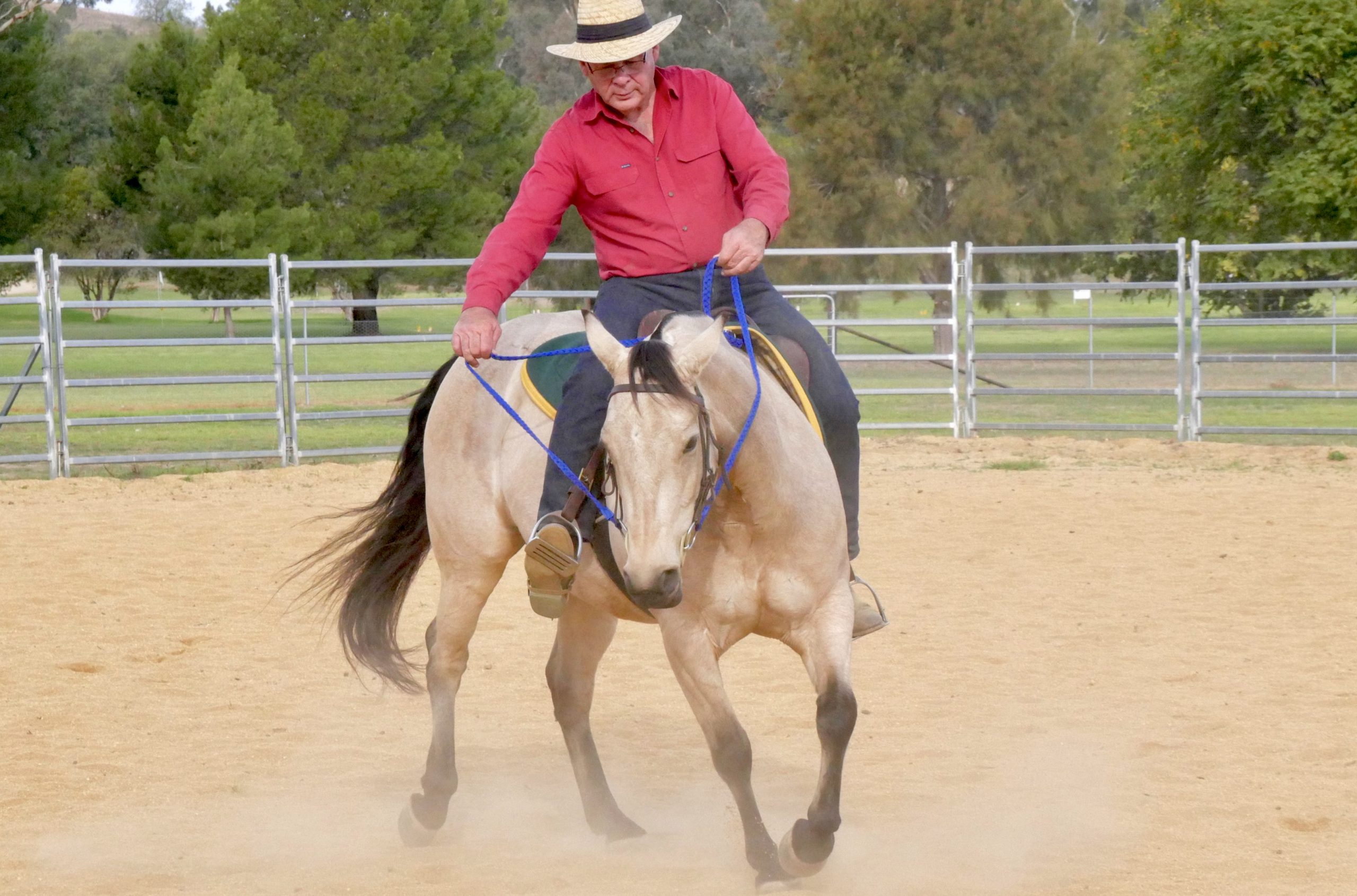I’ve heard at least a thousand times that you must gain your horse’s respect.
It’s a mantra parroted off by horse people everywhere and many trainers say that respect is the first thing you must achieve.
There are countless videos, articles and books on how to gain respect from your horse.
Respect is often explained as a horse giving an appropriate response when pressure is applied.
But what is an appropriate response?
A horse may buck or kick up when he’s ridden for the first time.
This response comes from fear and from not understanding what’s wanted.
It’s inconceivable to me that some trainers fob this off by saying such a horse lacks respect.
Perhaps your horse kicks up and resists when he’s asked to step over a log or up a creek bank.
Your horse may resist and kick up before he canters.
He may push over you when you lead him.
It’s a mistake to say such responses are inappropriate or that the horse lacks respect.
Whatever response a horse gives is neither good nor bad.
It’s just a response.
It may not be the one you hoped for but it’s not wrong or disrespectful.
It’s merely the response that the horse sees as being best under the circumstances.
It’s only what he’s been taught to do.
A horse doesn’t think, ‘I don’t respect this person, so I won’t do as he asks.
I’ll push over him when he’s leading me.
I’ll kick up and resist when he rides me because that’s inappropriate.
I know what he wants but I’m not going to do it.’
A horse has no understanding of good or bad.
He doesn’t know what we think is appropriate or inappropriate.
When a certain response relieves pressure once, he’ll use it next time.
If it works again, it’s reinforced in his mind.
If it keeps working, the horse will keep using the same response.
See this explained in my Fear-free Fundamentals Online Clinic.
When a horse doesn’t respond as expected, some trainers blame the horse.
They say the horse lacks respect and needs more pressure or punishment.
They justify running horses to the point of exhaustion,
hitting them on the head,
roping or strapping their legs,
chasing them with ropes or flags,
jerking their head,
tying them down on the ground
or depriving them of food or water,
by saying the horse lacks respect.
Remember, a horse’s response is just a response.
It’s neither appropriate nor inappropriate.
It’s never a horse’s fault if he’s not doing what you want.
You don’t have an excuse to apply excessive pressure or punishment, if a horse doesn’t respond as you expect.
It’s always up to the trainer to adjust the lessons to suit the situation.
There’s no point blaming the horse.

